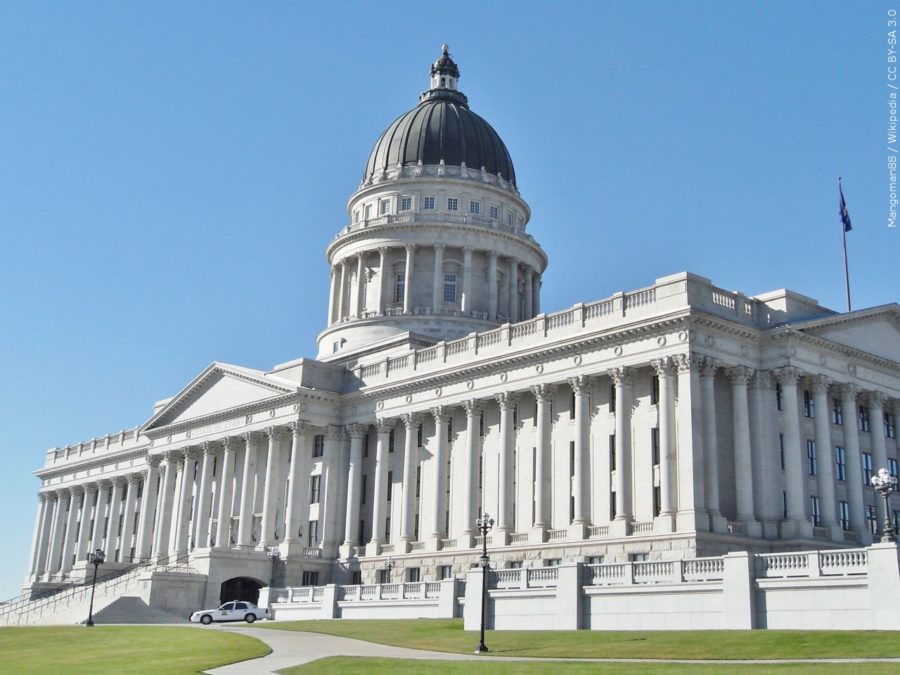House Bill 467: Changes to abortion access
Following the overturning of Roe v. Wade in 2022, Utah has seen much debate over the right to abortion in the state. More recently, a bill has been proposed that would wipe out abortion clinics in Utah, leaving all abortions to be performed in hospitals, “with some exceptions,” according to House Bill 467, Abortion Changes.
Not only will abortions be restricted to a hospital setting, but they will also be available to pregnant people only in more extreme situations. These situations include rape, incest, pegnancy under the age of 14, pregnancies that are life-threatening to the mother or conditions that are lethal to a fetus under 18 weeks of gestational age.
“These abortions are also going to be restricted because, as well as exceptions are written into abortion laws, they are never written well enough to actually impact every situation and provide care in every situation,” Jason Stevenson, director of public policy with Planned Parenthood of Utah, said. “Doctors are always hesitating. Laws are unclear. Conditions are outside of the language that’s in the law.”
As of 2022, Planned Parenthood of Utah reports that 11% of abortion cases come from Weber County. In addition to the stipulations placed on abortions in cases of sexual assault, victims seeking abortions will have to prove to the physician that they reported the incident to law enforcement. If the bill passes, law enforcement will be required to undergo one hour of training regarding sexual assault annually. The Ogden police department declined to comment on this possibility.
“We deal with a lot of patients that have been survivors of assault, both sexually and physically and emotionally,” Dr. Cabe Clark, a physician in the emergency department of Layton Hospital, said. “A lot of the time, the biggest thing is their control is taken away, and some of them want help, but they don’t want to record it.”
According to data from the Utah Department of Health, rape is the only violent crime in Utah with a rate higher than the national average. Weber County averages 48.5 reported forcible rapes per 100,000 people.
“People who have suffered severe sexual trauma, who are survivors of rape and incest, are being forced by lawmakers, by politicians to relive that trauma,” Stevenson said. “Instead of doing what is widely and scientifically known to be the best thing, which is to give them choices, give them options, and give them the support they need without putting more restrictions on their body. They’ve already lost bodily autonomy by being the victims, by being survivors of rape and incest.”
By eliminating abortion clinics, access to abortions will be limited by location, qualification and affordability.
If the bill passes, the cost of an abortion will rise significantly, and many people seeking abortions will be forced to pay out of pocket, as most insurance won’t cover abortions. According to Planned Parenthood of Utah in 2022, 53% of patients treated by Planned Parenthood in Utah had no health insurance. This number includes patients seeking care other than abortions.
As for abortions specifically, a fact sheet regarding abortion care released by Planned Parenthood of Utah shows that 39% of abortion patients are living at the Federal Poverty Level.
“The most common type of abortion done at Planned Parenthood costs about 036;450,” Stevenson said. “The most expensive abortion provided by Planned Parenthood in Utah is just slightly under 036;2,000. If HB 467 becomes law, the prices start between 036;10,000, 036;15,000 to 036;20,000.”
Measures like the ones taken in the proposed bill are not designed to reduce the need for abortion.
“Legislature only aims to restrict access, and so people are going to have to start reinventing and discovering what to do and how this care is provided,” Stevenson said. “Even if you pass laws saying no abortions will happen, people will still need abortion, health care, and abortions will still happen.”
With abortions being so restricted, there is the possibility that people needing abortions would seek solutions outside of hospitals.
“I was kind of brainstorming just to see with a bunch of other doctors here asking what we thought could change anything in the emergency department, and it’s hard to kind of know if it will,” Clark said. “If there are, if somebody who chooses to have an abortion can’t get access to one and they choose to use medicine outside or procedure, something outside of a clinic or a hospital would be another scenario. I think we could see more [if] somebody has a complication from an abortion they attempted to do in another way.”
Much like Clark, organizations like Planned Parenthood of Utah are unable to fully anticipate what it will be like to live without access to abortion.
“The generation of students right now is dealing with a lack of access to health care that hasn’t been seen in two generations of young people in our country,” Stevenson said.
Pro-Life Utah did not respond to a request for comment.










Cathideb • Mar 2, 2023 at 10:12 pm
Ooooh, McKinna. Abortions? Kind of a touchy subject, but you wrote this so well!